Ukraine Airlines Sues Iran And IRGC For $1bln Over Downed Plane
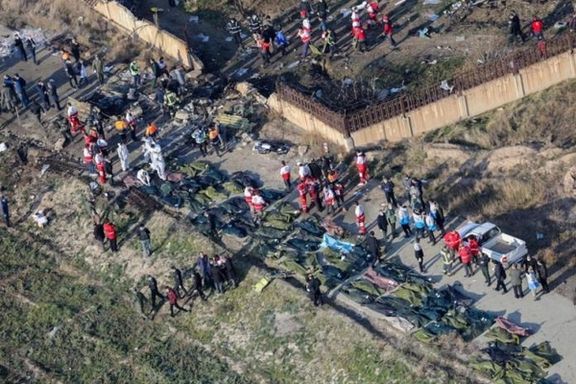
Ukraine International Airlines has sued the Islamic Republic and its Revolutionary Guard for the downing of its Flight PS752, which was hit by anti-air missiles in 2020.

Ukraine International Airlines has sued the Islamic Republic and its Revolutionary Guard for the downing of its Flight PS752, which was hit by anti-air missiles in 2020.
In the official complaint filed in January with the Ontario Superior Court of Justice and recently obtained by Iran International, the airline requested $750 million in compensation for the passengers and crew and $250 million in damages.
“The plaintiff claims damages for the loss of life and baggage of passengers and crew and derivative claims of surviving family members in the amount of $750 million and damages for and arising from the loss of its aircraft in the amount of $250 million,” the document read.
In June, Canada announced that it has notified Iran of Ontario's Superior Court of Justice’s ruling that IRGC’s downing of the plane was intentional. In the case -- titled Zarei et al vs Islamic Republic of Iran et al – some family members filed a civil lawsuit against Iran and senior officials they believe were to blame for the incident.
The airliner was shot down by two air-defense missiles fired by the IRGC as it took off from Tehran’s Imam Khomeini International Airport. Hours earlier, the IRGC had fired more than a dozen missiles at Iraqi bases hosting US troops in retaliation for the killing of the IRGC Qods Force Commander Ghasem Soleimani who was targeted by a US drone strike just five days earlier. All 176 passengers and crew, including 63 Canadians and 10 from Sweden, as well as 82 Iranian citizens on the plane died in the disaster.

The Islamic Republic’s anti-riot police forces have been deployed to crack down on a protest rally by workers of a copper mine in northwestern Iran.
According to a video sent to Iran International, anti-riot forces are seen attacking the workers of the Sungun (Soungoun) copper mine complex, located in Varzaqan (Varzaghan) county in province of East Azarbaijan, who have been on strike for at least three days demanding better work conditions and salaries.
More than 1,200 workers of the mine -- the largest open-cast copper mine in Iran -- spent the last three nights inside their tents or cars at the site of the mining complex.
During the past few days several of the copper mine workers were arrested by security forces but the clampdown had not been so ferocious until Thursday.
Iran’s runaway inflation, currently at an annual rate of 55 percent, has impoverished a vast majority of the population and is seen as the result of a nuclear program that has brought on international and US sanctions for the past 15 years, crippling the economy.
With food prices rising faster after four years of United States’ ‘maximum pressure’ sanctions, Iranian workers and retirees have been holding regular protests or strikes to demand higher salaries. Last month, Iran’s currency fell to a historic low of 333,000 rials to the US dollar in June.
During the past weeks, widespread protests by workers,shop owners, and teachers protesting against poverty, inflation, and low wages, have been met with heavy-handed crackdown and numerous arrests by the security forces.
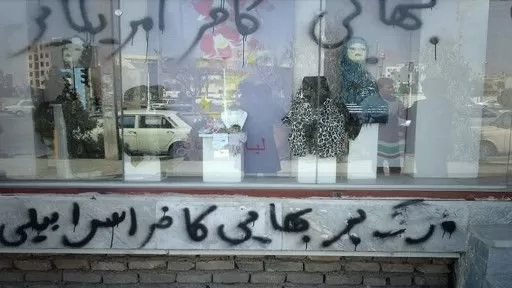
Followers of the Baha'i faith say the Islamic Republic has taken its systematic campaign to suppress the religious minority to a higher level in recent weeks.
The Worldwide Baha’i Community announced in a recent statement that at least 44 Baha'is were summoned to court, detained, put on trial or given prison sentences in June.
Earlier in June, Radio Farda reported that 26 followers of the Baha'i faith, all of whom residing in the city of Shiraz in the southwestern province of Fars, were sentenced to 2-5 year in prison on charges of "conspiracy to disrupt internal and external security." The verdicts were issued on June 8 by a branch of the city’s Revolutionary Court.
The 1979 constitution of the Islamic Republic recognizes only Islam, Christianity, Judaism and Zoroastrianism. Baha'ism − established as a new religion in Iran in 1863 by Baha'ullah, who claimed to be a prophet following Jesus and Muhammad − has always been deemed heretical by the Shia establishment and subject to intermittent bouts of political persecution.
Supreme Leader Ali Khamenei has on several occasions called the Baha'i faith a cult and in a religious fatwa in 2018 forbade contact, including business dealings, with followers of the faith.
Baha'is, who number around 300,000 in Iran, say their rights are systematically violated, that they are often harassed, forced to leave their homes and businesses, and are deprived of government job and university education. There are Baha’i communities in many countries worldwide but there is no reliable figure about the total number of followers.

The British Ambassador in Iran, Simon Shercliff, says the man the Islamic Republic claims it has arrested left the country in December 2021 after his term finished.
The UK envoy tweeted on Thursday that “These reports that our deputy ambassador is currently detained are very interesting… He actually left Iran last December, at the end of his posting.”
Confirming his comments, the UK Foreign Office told Iran International that the "reports of the arrest of a British diplomat in Iran are completely false."
Iran's state television reported Wednesday night that the Revolutionary Guard's Intelligence Organization "identified and arrested" several foreign nationals, including the deputy head of the UK embassy in Tehran, who were taking soil samples in the central Iranian desert.
Giles Whitaker, the deputy head of the UK mission, was visiting the Shahdad desert near the city of Kerman along with his family when he was detained and expelled because of "trying to smuggle out samples of soil from a prohibited area close to IRGC’s missile tests.”
Several other researchers and scientists have also been arrested, including Maciej Walczak, a researcher at the Department of Environmental Microbiology and Biotechnology at Nicolaus Copernicus University, as well as Marcin Switoniak and Charzynski Przemysław from the Soil Science Department of the same university.
Poland’s Ministry of Foreign Affairs has confirmed that a Polish national was taken into custody in Iran in September 2021. “Considering the best interests of the highly reputed scientist, the MFA will not disclose any details of the case,” it added.
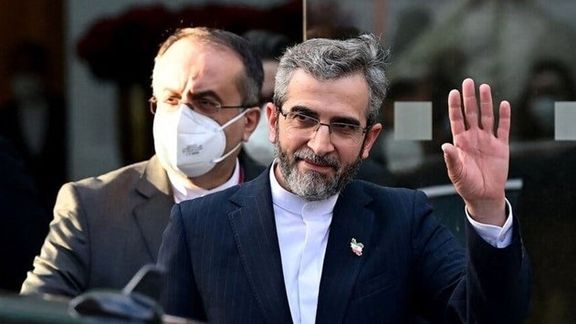
Iran's top nuclear negotiator Ali Bagheri-Kani has travelled to Oman about a week after Tehran-Washington talks in Qatar failed to produce any results.
Bagheri-Kani, who leads the Iranian team in talks to restore the 2015 deal, formally known as the Joint Comprehensive Plan of Action (JCPOA), set off for Muscat Thursday morning, a few days after he paid an unannounced visit to Russia following the failure of the proximity talks in Doha. Before the Doha talks, Oman had reportedly proposed to host the indirect negotiations.
Earlier in the week, Iran's Foreign Minister Hossein Amir-Abdollahian held a phone conversation with his Oman counterpart Sayyid Badr Albusaidi, in which he reiterated Tehran’s seriousness to achieve an "enduring and strong" agreement, repeating that “constructive negotiations depend on seriousness, initiative and flexibility on the American side.”
On Wednesday, Qatar's Foreign Minister Mohammed bin Abdulrahman Al Thani was also in Iran to follow up on nuclear talks. Addressing a joint press conference with his Qatari counterpart, Amir-Abdollahian rejected claims made by US officials about new demands raised by the Iranian delegation in Doha talks, saying the Islamic Republic’s requests are in line with the 2015 accord.
On Sunday, Al Thani also discussed the latest status of Vienna talks with US Secretary of State Antony Blinken.
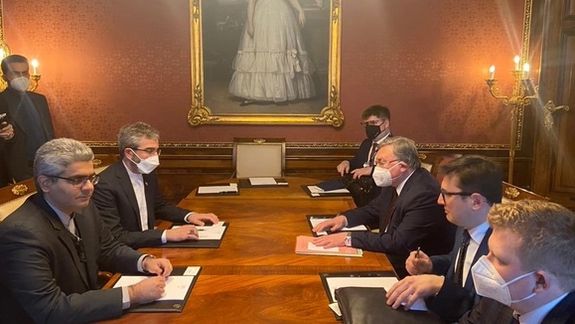
Tehran’s hardliner daily Kayhan, linked to the Supreme Leader, went out of its way on June 6 to defend Russia as an ally of Iran against recent criticisms.
Recently some Iranian politicians and pundits have criticized Iran’s close ties to Russia and have hinted that the lack of a nuclear agreement with the West is because of excessive reliance on Moscow.
Foremost among those is former lawmaker Heshmatollah Falahatpisheh who has been blaming Russia for the failure of Iran's nuclear talks with the West.
In several articles and interviews Falahatpisheh has argued that Russia is the main obstacle on the way of the revival of the Joint Comprehensive Plan of Action (JCPOA).
The immediate trip to Moscow by Iran’s chief negotiator after two days of indirect talks in Qatar with US envoy Rob Malley led to a lot of criticism in Iran by those who resent Moscow’s influence over Tehran and believe Russia is working against a nuclear agreement with Washington.
Criticism against Russia intensified when in March the nuclear talks came to a halt after Moscow demanded exemptions from Western sanction in its dealings with Iran. This was seen by many Iranians as undue interference by Moscow and a violation of Iran’s national interests.
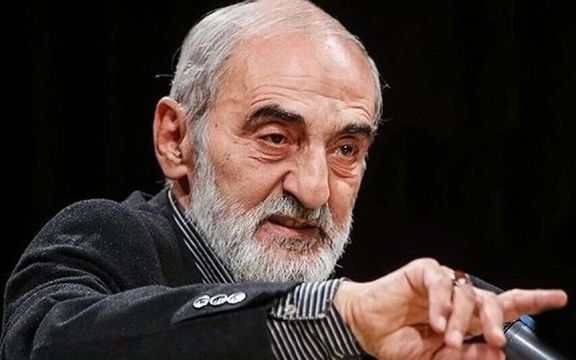
The Kayhan, which is linked to and maintained by the office of Iran's Supreme Leader Ali Khamenei, asked the lawmaker: "Why do you say Russia has kept the negotiations in suspension? Was it Russia or the United States that violated the JCPOA and withdrew from the nuclear deal imposing 1700 sanctions on Iran?"
The daily further asked: "Is it Russia or the United States that must commit not to break its promises again? Is it Russia or the United States that needs to offer guarantees to Iran?"
In his latest interview, Falahatpisheh, a former member of the Iranian parliament's National Security and Foreign Relations, told reformist daily Shargh that "the Islamic Republic should distance the nuclear deal from the war in Ukraine. It is only then that an agreement can take place."
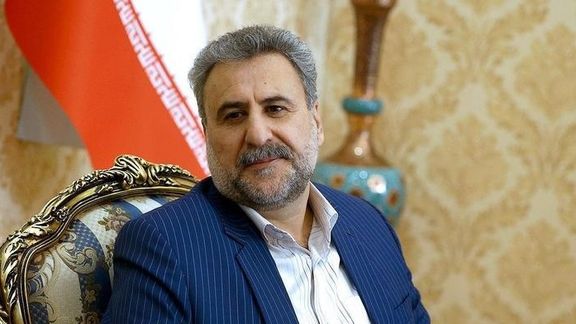
Falahatpisheh reiterated that "The meeting in Doha showed Iran is stuck in the quagmire of Russia's war in Ukraine." He further charged that it was Russia's interests that prevented an agreement between Iran and the United States."
"The interests of the Islamic Republic of Iran were totally ignored in the meeting in Doha," Falahatpisheh stressed, adding that "Iran's interests were sacrificed to secure Russia's interests.
"At the same time, other countries, including some of the Persian littoral states were emboldened to intervene in the nuclear talks and all that is a direct outcome of Iran's behavior. But the nuclear negotiations have only two main sides: Iran and the United States," Falahatpisheh said.
The Kayhan claimed that even EU Foreign Policy Chief Josep Borrell has said that Russia was not against an agreement between Iran and America in Doha.
The hardliner daily asked, "Why instead of protesting against the United States' treason and admitting that the United States is not after a balanced and useful agreement with Iran Mr. Falahatpisheh levels accusations against Russia?"
The daily then accused Falahatpisheh of serving US interests and suggested that he has been blackmailed by Washington to make these comments against Russia.
Meanwhile, the Kayhan, a staunch supporter of Russia's policies and its war on Ukraine, published an editorial by hardline commentator Sadollah Zarei that Iran should take lessons from Ukraine and never be dependent on other countries; an argument that contradicts the daily's praise for Iran's often unilateral alliance with Russia.